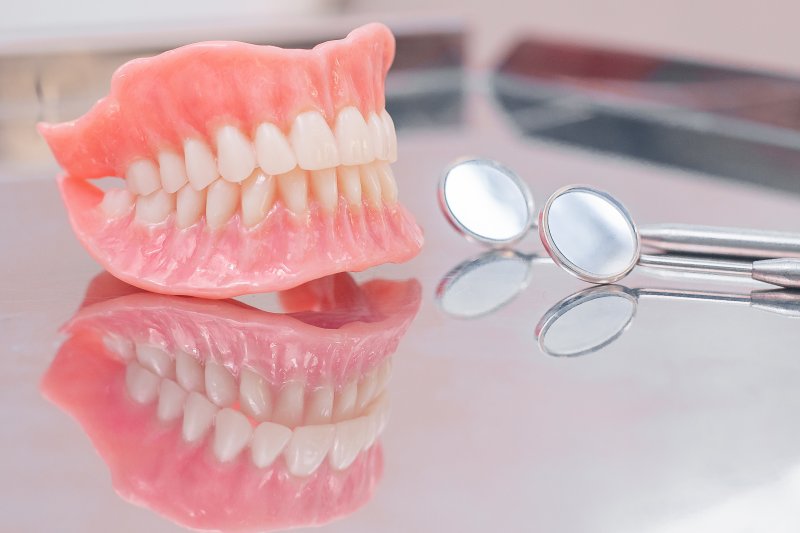
As the saying goes, you don’t know what you have until it’s gone. People lose many things they take for granted with age. One notable example is the sense of taste, which diminishes as your body’s ability to smell and produce saliva weakens. Still, your dentures from Norton Shores could be making this loss even worse. As it turns out, these prosthetics have features that can interfere with tasting. Read on to learn three major ways dentures impact taste and how to overcome them.
Why Would Dentures Affect Taste?
Dentures, being false teeth, are made of artificial materials. Consequently, their non-natural elements sometimes conflict with your sense of taste. Consider the three listed below.
Poor Denture Fit
If your dentures don’t fit properly, you may rely on creams and adhesives to keep them secure. Unfortunately, such items are known to alter taste.
People often describe denture creams as having a lingering metallic flavor. That said, overuse of them can lead to taste loss. It’s thus important that dentures are well-fitted, as that will keep you from using more adhesive than recommended.
Denture Covering Your Palate
Unlike complete lower dentures, full upper ones often use a base plate. As it provides stability, this plate keeps the prosthetic in place.
An upper denture’s base plate can sometimes cover your palate’s taste receptors. When that happens, it reduces the intensity of perceived flavors and thus contributes to taste loss.
A Build-up of Food Deposits & Stains
Dentures naturally build up food deposits and stains when used to eat or drink for a while. As that takes place, the resulting debris can overwhelm your senses and hinder taste. After all, it’ll be hard to taste the chocolate in front of you if you can only sense last week’s lasagna.
Improving Your Sense of Taste
If you take specific steps, it’s possible to keep your dentures from ruining your sense of taste. Try following these three in the future:
- Consider dental implants – Implant-retained dentures don’t need a base plate, meaning they wouldn’t cover any taste receptors in your mouth.
- Clean your dentures regularly – You can avoid stain buildup and food deposits that alter your taste by brushing and rinsing your dentures daily.
- Get better-fitting dentures – Talk to your dentist about switching out your dentures for ones that fit better. That way, you wouldn’t need as much metallic-tasting cream to secure them.
Even if you naturally lose taste as you grow older, you shouldn’t let go of it more than necessary. Look into whether changes to your dentures could restore more of your meals’ tastiness.
About the Practice
Laketown Family Dental is based in Norton Shores, MI, and is led by husband-and-wife Drs. Eric and Ariel Heisser. The practice specializes in preventive, cosmetic, and restorative dentistry, not to mention emergency dental treatments. It can also perform dental sedation as needed. For more information or to book an appointment, you can reach them at their website or by phone at (231)-737-2273.
 (231) 737-2273
(231) 737-2273

 Appointment
Appointment